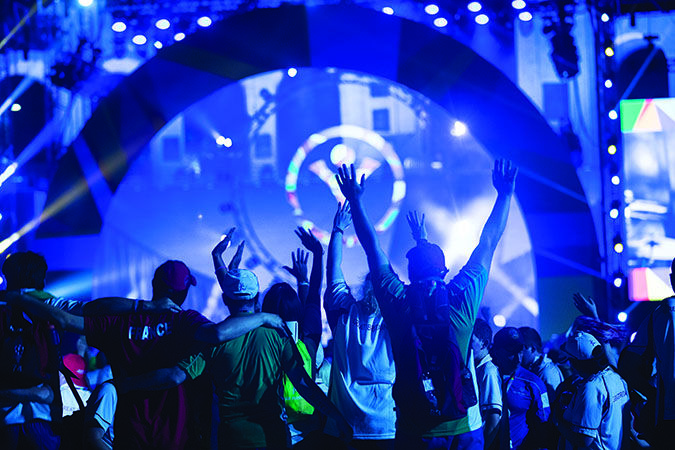On Aug. 2, the 2015 Special Olympics World Games held a final celebration with the help of celebrities, volunteers and dignitaries from around the world, who promised a more unified world that welcomes the disabled.
The closing ceremony took place at the Los Angeles Memorial Coliseum, where about 40,000 spectators cheered, sang and danced in celebration of the accomplishments of the more than 6,500 athletes.
“These Games must close but we can’t let them end. What happened these past nine days can and should happen every day around the world,” said Janet Froetscher, president of the Special Olympics.
Athletes from all over the world took home gold medals. Special Olympics athlete Thea Skoglund of Norway posted her personal best in kayaking, while Onesmus Mutinda of Kenya won the half marathon with a time of 1 hour and 18 minutes.
Froetscher said the athletes “represent the most marginalized population on the planet,” but by defying the odds to become champions, they became “sports champions and champions of acceptance and inclusion.”
The games are a time to bring about lasting change. “See them as the world has seen them these past few days,” she said. “Don’t let them return to the isolation, stigma, neglect they’ve lived with all their lives. They deserve better. They’ve earned it.”
Reversing the stigma means hiring someone with disabilities or inviting them to play dates with your children, said Froetscher. “Coaches, invite others to create unified teams. Families, share your stories with pride.”
This message of inclusion and unity needs to be spread to every school, every community and every town, Froetscher said. “Every one of us must all leave with a message and a mission and a sense of urgency. It is life saving and life enhancing. The time has come. It is time for inclusion — full inclusion.”
Jonetta Mitchell came with her daughter and mother to the closing ceremony. She told the Tidings that she came to show her support for the athletes.
Mitchell works with children with autism and Down syndrome and said she has seen how a sport gives those with mental disabilities an outlet and a mode of self-expression.
“I think it builds confidence,” she said. “I see that we are trying to be inclusive,” but in her community of Los Angeles, she says, “there’s a long way to go.”
Mitchell’s daughter, Deborah Mitchell-Moore, 11, said, “I think that it’s good to support the kids who have special needs, so we can support them and encourage them to play their best.”
She added, “Some people think that kids who have special needs can’t do everything that we can do, but they can.”
Olympics winter games gold medalist Apolo Ohno introduced the delegation from Austria, who announced their country as the site for the 2017 Special Olympics Winter Games.
Austrian Special Olympics athlete Johanna Pramstaller told the audience, “It is our pleasure and honor to welcome you to the 2017 World Games in our beautiful country. See you there.”
The Special Olympic flame was handed on to Police Lieutenant Clint Dohmen as the cauldron at the top of the coliseum was extinguished. The flame will be carried to Athens where it will burn alongside the Olympic flame.
At the end of the evening, Canadian pop singer Carly Rae Jepsen performed her record-breaking music to an enthusiastic crowd. During the performance of her Grammy-nominated song, “Call Me Maybe,” Jepsen came down to dance, take selfies and give hugs to the Special Olympics athletes.
“It is this team from all over the world here in this Coliseum tonight that will change the world, but as big and committed as we are, we cannot do it alone,” Froetscher said at the end of her speech. “We need each and every one of you to reach out and invite others to come out and play and join us.”
She added, “Athletes of these 2015 Games — celebrate and continue to show the world who you are and lead us.”

